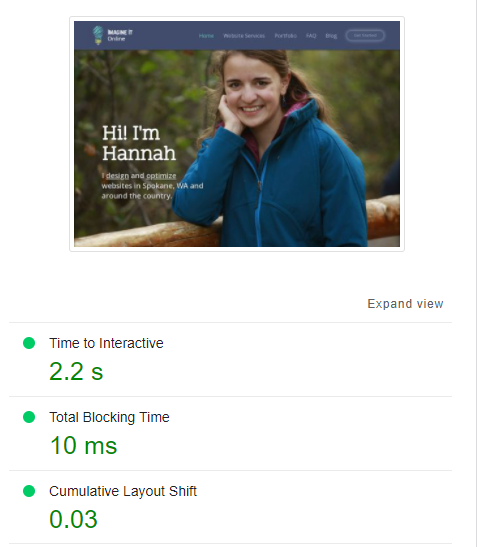How SEO used to work
In the past, so-called SEO experts would cram websites full of keywords and commonly searched terms. Some of these terms did not even relate to the topic. Often, blog posts or web pages were hard to read because keywords were thrown in, in such a high density that the written content didn’t make logical sense. Fortunately, Google realized this and made adjustments to their search engine algorithms. The changes were great for users because it made it so they could find relevant answers to their questions more easily. However, making SEO more than just key words, made SEO a little more difficult for businesses to manage.
The New SEO Algorithm – More than key words
Nowadays, search engine algorithms take into account a lot more than just keywords. Search Engines assess many different factors. We’re going to talk about 4 main factors of your website’s content that search engines take into account: User Experience, Site Speed and Performance, Content Relevance, and Keywords.
1. Site Speed and Performance
One of the first things Search Engines take into account when scoring websites, is speed and performance. If people visit a website and it takes forever to load, they’re going to click right back to the search results. Google and other search engines succeed by providing users with the best results first. Slow-loading websites do not offer the quick answers searchers are looking for. Therefore, a website that loads slowly will rank lower in search results.

Want to know how your website performs speed-wise? It’s a bit techy, but Google provides a great tool that will help you see where you can improve your site speed. Test your website out here.
2. User Experience
Another primary consideration of search engines is user experience. Once your website loads (hopefully in 5 seconds or less for mobile), does the user find what they’re looking for? If your content is organized with the user experience in mind, they should find what they need quickly. If the user has to click 5 different buttons to get to what they want, they’re probably not having a good user experience.
3. Content Relevance
Oftentimes, businesses fill their home page with the content they want to see. This usually means, they weren’t evaluating whether the content is what users want to see. If your content isn’t what your user wants to see or need, it’s probably not going to be relevant to them and they probably won’t stick around. Google measures the time people stick around on your site and rank your content’s relevance accordingly.
Content relevance is an important factor in search engine rankings. If someone visits your site, to find answers about a topic your website ranked for based on keywords. They should find a good answer. For example, if a searcher found your website because it ranked for the keywords: awesome cat videos, they should find some pretty awesome cat videos on your website.

Once the page loads and the user sees your content, does it actually answer their question? If not, they’re going to click back to the search results rather than continue reading. This is called bounce rate. Over time, Google assesses the bounce rate for pages or articles on your website. If it is high, meaning people are leaving quickly, that page on your site will rank lower in searches. Google will assume that people didn’t find what they were looking for and will in turn consider your site less relevant for the keywords/phrases you chose to use.
4. Appropriate Search terms and key words
And, now, for the most obvious thing, Google considers in search engine ranking: keywords. Yes, SEO requires more than key words, but key words are important!
Think about the content you want people to find on your website. Then think of terms you might use to search for those topics if you were looking for information on Google. Think about the words you are using. Are the words pretty technical or are they common terms? Are there synonyms people would be more likely to search for instead? The key words you use, as they relate to your topic, are directly going to impact whether people find your content relevant. So it’s important to be intentional when choosing key words to include in your writing. The specifics of key words, will definitely require another post, but in the meantime, if you have questions, shoot me a message.
Summing up SEO – It’s more than just key words
So, things you need to keep in mind for SEO besides key words: Site Speed and Performance, User Experience, Content Relevance, and Search Terms. Not sure how your site stacks up? I’d love to help you figure out your SEO. Shoot me an email or feel free to call me and we can talk about how your site is doing and ways to improve it.






